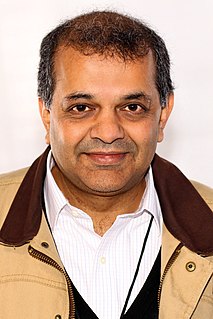A Quote by Ken Burns
I think we continually need to understand how important an event the war was - how defining, how central to who we are. Everything that came before it led up to it, and everything of importance to this country - at least up to 1940 - was a consequence of it. Even now there's an echo of the war, however faint, in almost everyone's life.
Related Quotes
Growing up during World War II certainly affected my whole view of life, but I hardly know how, it goes so deep. What's hard to explain now is that, though we were never invaded, and bombed only once and ineffectively on the coast of Oregon, everybody in the country was in that war. Everything we did was influenced by it - eating, traveling, dressing, thinking - everything in daily life.
I think everyone's kind of just whistling and pretending everything's OK. At the heart of this is the cover-up, and the misleading the country to war in Iraq. And quite honestly, I don't think Republicans actually did a particularly good or sophisticated job, but I think everybody wanted to be fooled. I remember being on the Bill Maher show talking about how ridiculous this was before the invasion. And, you know, a lot of people, even Democrats, had been so easily thrown into this fear frenzy that they lost common sense.
I see this as the central issue of our time: how to find a substitute for war in human ingenuity, imagination, courage, sacrifice, patience... War is not inevitable, however persistent it is, however long a history it has in human affairs. It does not come out of some instinctive human need. It is manufactured by political leaders, who then must make a tremendous effort--by enticement, by propaganda, by coercion--to mobilize a normally reluctant population to go to war.
I remembered being young in the late '70s and early '80s and growing up at the height of the Cold War. I remembered how scared I was of nuclear weapons, how often I though about them and about the possibility of everything and everyone I knew vanishing in a second in temperatures hotter than the centre of the sun.
An aggressive war is the great crime against everything good in the world. A defensive war, which must necessarily turn to aggressive at the earliest moment, is the necessary great counter-crime. But never think that war, no matter how necessary, nor how justified, is not a crime. Ask the infantry and ask the dead.
I didn’t know how I could live with that knowledge, without it eating me up, without it poisoning every happy memory I had of growing up. Without it ruining everything Beck and I had. I didn’t understand how someone could be both God and the devil. How the same person could destroy you and save you. When everything I was, good and bad, was knotted with threads of his making, how was I supposed to know whether to love or hate him?
Is it not tragic, for example, that while in the last World War almost everyone believed it was the war to end all wars and wanted to make it so, now in this Second World War almost no writer that I have read dares even suggest that this is the war to end all wars, or act on that belief? We have lost the courage to hope.




































